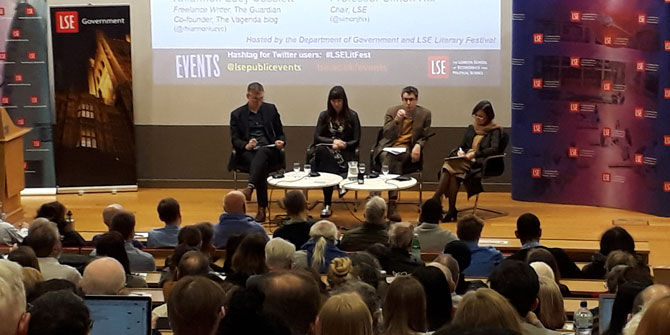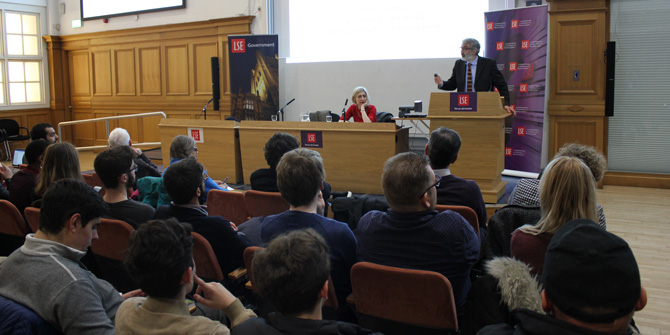Jacob Alabab-Moser examines the government repression of the Mexico City popular-student Movement of 1968 and its echoes in modern-day Mexico.
During the “global 1968,” dozens of youth movements in Latin America, Europe and beyond emerged weeks apart, making similar demands for changes to the status quo in their given societies. Mexico City saw the development of its own student movement that, in part, urged for an end of authoritarian actions by the Institutional Revolutionary Party — the political party that singlehandedly ruled the country — including control of the press and repression by the police and military, which still exist in the country today.
In recent research I explored to what extent student activists in Mexico City were conscientious of a global 1968 and engaged with an international imaginary. I found that various pressures caused the student movement leaders to downplay any international influence or solidarity in their mobilisations. Chief among these was a well-documented effort by the Institutional Revolutionary Party’s authoritarian regime to frame the student movement as infiltrated by foreign elements, or ”manos extrañas” (literally foreign hands).
While Mexico experienced foreign invasions and other threats to its sovereignty during earlier periods, historians have shown how, during the Cold War, the Mexican government surveilled the country’s social movements and knew about their relationships with foreign governments because of the intelligence relationships it brokered with the United States, Cuba, and the Soviet Union. Without the threat of meddling by foreign powers, the government began to deliberately manipulate public opinion towards viewing political dissent as foreign-supported or foreign-inspired in order to garner support.
In 1968, President Gustavo Díaz Ordaz used this tactic more intensely in response to his own paranoia about increasing dissent from civil society and the pressure to project stability in the capital ahead of the Olympic Games. Historical documents I analysed in Mexico City and Washington DC archives confirm this. For example, a directive issued by an anonymous government author to major media outlets suggested some terms to call the student activists: “a) plotters, b) terrorists, c) guerrillas, d) agitators, e) anarchists, f) anti-patriots, g) mercenaries, h) traitors, i) foreign mercenaries, j) criminals.”
While the government conducted a smear campaign and deployed military force against protestors, the student movement continued to grow and gain support from people from across society. The government ultimately crushed the movement in the Tlatelolco Massacre, in which military forces killed hundreds of peaceful protestors on October 2, 1968.
Repression persists in contemporary Mexico
Social movements in contemporary Mexico have continued to be repressed, even after the end of the PRI’s one-party rule and the transition to a multi-party system in 2000, indicating the incomplete consolidation of Mexican democracy.
Governments in recent years have shown various levels of intransigence towards social movements, oftentimes using violent repression. Over one hundred teaching school students from the state of Guerrero were on a bus on their way to Mexico City — ironically, to protest the October 2 commemoration of the Tlatelolco massacre — when they were abducted by military forces. Other examples of repression include police repression against the 8 de Marzo feminist marches; violence by government-hired armed paramilitary gangs against students fighting for autonomy on their university campuses; and most recently, in fall 2022, President Andrés Manuel López Obrador’s (AMLO) denigration of opposition protests against the electoral reform he introduced.
Weaponising xenophobic discourse as a political tactic
At the same time, AMLO and other modern-day politicians have continued to fixate on “interference” by foreign actors in Mexican civil society. During AMLO’s daily press conferences in 2021, for example, he denounced the press freedom organization Article 19 and the anti-corruption group Mexicans Against Corruption and Impunity for receiving funding from foreign governments, especially the US, and accuses them of allying with the conservative opposition and plotting coups against his government. On another occasion, the president accused a large group of media and advocacy organizations of receiving foreign funding to oppose one of his flagship infrastructure projects. There have also been legislative proposals to bar NGOs who receive foreign funding from legislative advocacy or strategic litigation. Article 19 has denounced the attempt to impede NGOs’ international financing as an “authoritarian reversal.” Mirroring the Cold War history, the attacks on foreign funding are ironic given that Mexico receives billions of dollars in development aid from other countries, including the US for the areas of drug and security cooperation.
Over recent months, AMLO has launched a series of controversial reforms against the national election system, against which the political opposition and many parts of civil society have mobilised through huge protests. Without explicitly criticizing the laws themselves, the US State Department issued a statement of support for the protests for which AMLO characterised the US as being “good at seeing the sawdust in another’s eye and not the plank in its own.”
While some commentators allege that AMLO has contributed to democratic backsliding in Mexico, his government continues to enjoy high levels of approval. Despite all of the change that Mexico has experienced in the modern era, its leaders continue to use elements from same playbook that their predecessors used over a half century ago.
Note: this article gives the views of the authors, and not the position of the LSE Department of Government, nor of the London School of Economics.
Image credit: Gobierno CDMX






Great post, thanks Jacob. I knew very little about the Mexico City 1968 movement so this was instructive. I particularly liked learning that the state instructed that student activists were to be referred to as: “a) plotters, b) terrorists, c) guerrillas, d) agitators, e) anarchists, f) anti-patriots, g) mercenaries, h) traitors, i) foreign mercenaries, j) criminals.” ! Discourse analysis of struggles against repression around the world today would likely reveal a similar lexicon.